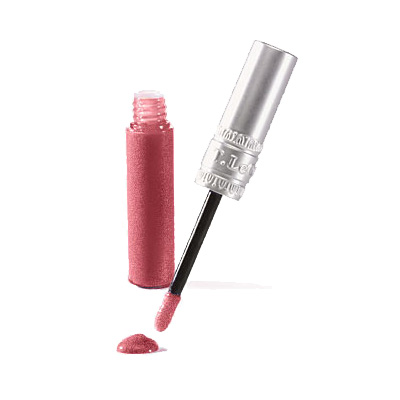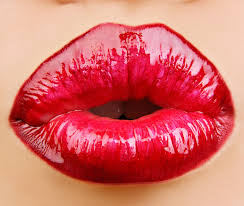
by theglamscientist | | binder, lip gloss, polybutene, polyisobutene, viscosity increasing agent |

This post was inspired by my good friend and fellow cosmetic chemist, Kimberly Riley (@KiMiStRyCOS), who recently posted this tweet:
@KiMiStRyCOS: Wondering why your lip gloss is sticky? It’s probably comprised of mostly synthetic ingredients #makeupmonday
I couldn’t resist the urge to take this statement a bit further by telling you exactly which ingredient(s) are responsible for the sticky texture. Some women like sticky lip gloss because it is long lasting. Makeup artists use the sticky stuff to add an artistic touch to the lips with rhinestones, glitter, sprinkles etc. There are other women, like myself, that don’t like the “tacky” feeling, but rather prefer a smooth, moisturizing texture.
The ingredients typically responsible for the sticky texture of lip gloss are polybutene and polyisobutene. Polybutene is a synthetic polymer that acts as a binder, epilating agent (hair removal) and a viscosity increasing agent. It is a sticky, non-drying liquid that is also used in adhesives. The Cosmetic Ingredients Review has deemed this ingredient safe as it is currently used. You may also find this ingredient in lipstick, eye makeup and other skin care products.
Polyisobutene is a close cousin to polybutene. It is also a binder and viscosity increasing agent used in cosmetics. Unlike polybutene, polyisobutene dries to leave a thin coating on the surface of the lips. Low molecular weight polyisobutenes are thick, soft and tacky liquids. Polybutene is typically used in water based formulations, while polyisobutene is used in oil based formulations.
One of my biggest pet peeves about lip gloss and lipstick alike is that some formulas tend to cause my lips to peel. I believe polyisobutene is the culprit responsible for this gross occurrence. Of course, I will take a closer look at this to confirm or deny the accusation in the near future.
So that’s “the sticky”. Use it to live life glamorously 🙂
by theglamscientist | | dry skin, lip gloss, lip products, occlusive agents, softening oils |

So, lip gloss makes me happy and I’m not ashamed :-)I have about 5 glosses in my purse at the moment and I still feel like that’s not enough. Don’t worry, I’ll be adding to my arsenal soon with a couple brands I’m working on and one that my good friend Kim Riley has developed. I digress…
The real purpose of this post is to discuss the properties of the lips and why all lip products are not created equal. Like the rest of our body, our lips are covered with 3 layers of skin: stratum corneum, epidermis and dermis. The stratum corneum is the outer most layer of skin that protects the epidermis. The stratum corneum on the lips is much thinner than that on the rest of our bodies. Thus, the stratum corneum of our lips is much more delicate and requires more specialized care. Another significant difference in the skin on our lips and our bodies is that our lips do not have sebaceous glands. Since our lips don’t excrete any necessary oils or moisture, lip care products are a must. Also, the amount of melanin in our lips is considerably less than that of the rest of our skin. Sun damage is real and devastating to our beauty, our lips need and deserve a good sunscreen.
One major problem I have had with several lip products on the market is that they cause my lips to peel. I think that is extremely gross and unsightly. The reason behind this peeling phenomenon is actually pretty simple and easy to avoid. Some lip care products are heavy in occlusive ingredients. Occlusive products, also known as barriers,are characterized as products meant to lock in moisture. Knowing that our lips don’t produce moisture, what is an occlusive product actually doing? Trapping dryness and making your lips even more dry!
So what ingredients should you avoid? Primarily mineral oil and petrolatum. Other natural occlusive agents may be used in lip balm products which is what gives them their stiff/dense consistency. Ingredients like beeswax, candelilla wax and carnauba wax are not too bad when other skin softening, emollient ingredients are used. Some good ingredients to look for are jojoba oil, almond oil, coconut oil and olive oil. These oils will easily absorb in your skin and provide some much needed nutrients and moisture.
So back to my love of lip gloss… because of the typical consistency of lip gloss, it can easily avoid overusing occlusive agents and can maximize all kinds of amazing oils and extracts.
So now that I’ve given you the skinny… do the glam thing and give yourself a little lip service 🙂



